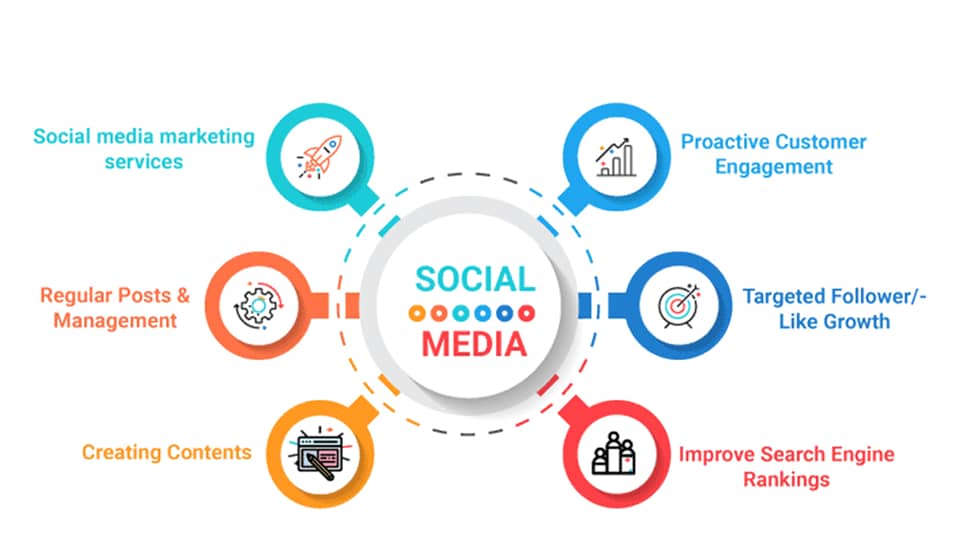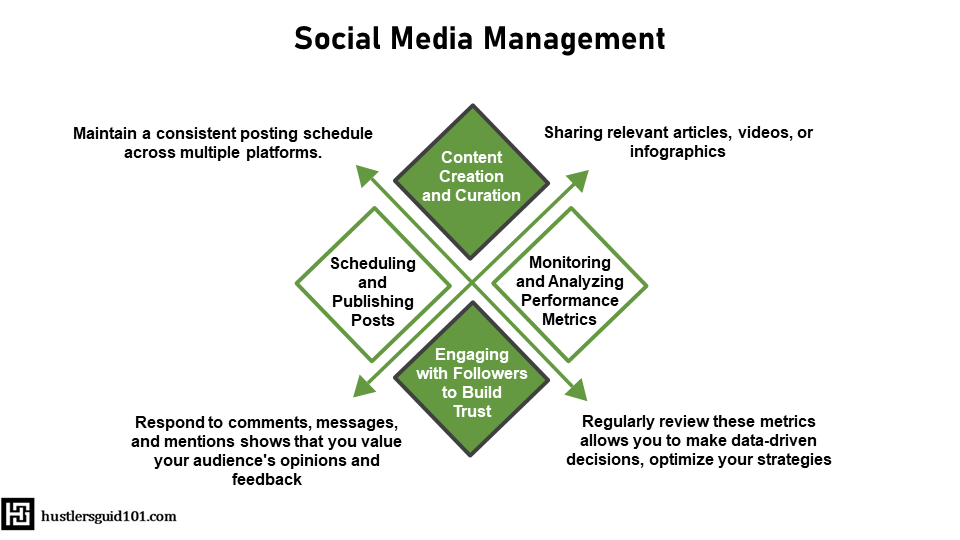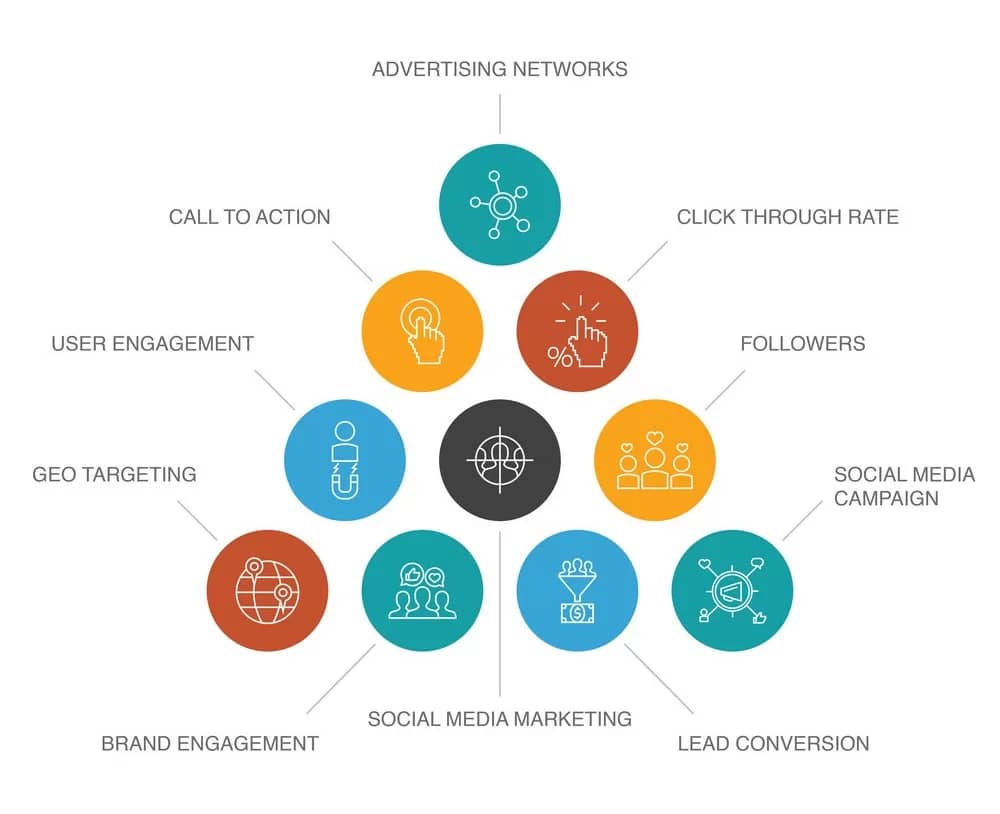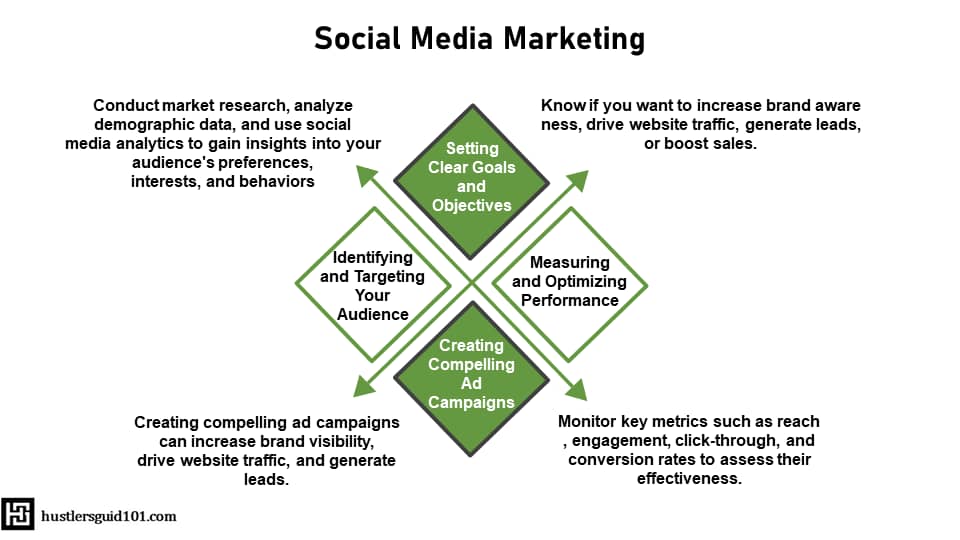
Social media has become more than just a show-off platform; it has emerged as a primary and important tool for businesses. With the rise of social media as a marketing tool, it’s important to understand the distinctions between these two terms, i.e., Social Media Management vs Social Media Marketing.
Social media management involves the day-to-day activities of managing and optimizing your social media accounts. Conversely, social media marketing refers to using social media platforms to promote your products or services, increase brand awareness, and drive traffic to your website.
I will provide practical tips and insights to help you succeed in the ever-evolving world of social media. Keep Scrolling!
What is Social Media Management?
As the name suggests, Social media management has something to do with management. It involves the day-to-day activities of managing the social media accounts and ensuring they are optimized for maximum engagement and reach.
Usually, businesses have a separate job role in this regard. A social media manager is responsible for creating and curating content, scheduling posts, and responding to comments and messages.
Also, performance metrics should be analyzed to improve the effectiveness of social media campaigns. Which means you will be paid for just scrolling and posting, sounds amusing. Well, besides just scrolling, there are other very important tasks too, which goes like:
1. Content Creation and Curation
One of the primary tasks of social media management is creating and curating compelling content for your social media platforms. Your content should be tailored to your target audience and aligned with your brand image. It should be informative, engaging, and shareable.
By understanding your audience’s interests and preferences, you can develop content that resonates with them and encourages interaction. In addition to creating original content, curating content from reputable sources can also provide value to your audience.
Sharing relevant articles, videos, or infographics can position your brand as a trusted source of information. Remember to give credit to the original creators and add your own insights to the curated content. It’s not good to be a copy cat.

HVAC social media marketing or Hyperlocal social media marketing? Now you can learn about both in detail.
2. Scheduling and Publishing Posts
Consistency is key when it comes to social media management. Scheduling and publishing posts at regular intervals helps you maintain an active presence on social media platforms.
It allows you to stay engaged with your audience and ensures that your brand remains at the top of people’s minds—not only on people’s minds but also on search engines. Several social media management tools are available that can help you schedule and automate your posts.
These tools free you from the everyday hassle of posting and allow you to plan your content in advance, optimize posting times, and maintain a consistent posting schedule across multiple platforms. By utilizing these tools, you can save time and streamline your social media management process.
You can also check out some of the most widely used inbound marketing tools.
3. Engaging with Followers and Building Relationships
Engaging with your followers is as important as posting. Responding to comments, messages, and mentions shows that you value your audience’s opinions and feedback. It also helps build trust and loyalty among your followers.
Take the time to listen to your audience and actively participate in conversations related to your industry or niche.
My Sugesstion: Relate to your audiences's experiences and share yours to develop a personal relationship with everyone. I'm not kidding but sharing relevant memes and GIFS can give you a good attention.
You can establish yourself as an authority in your field by providing valuable insights, answering questions, and addressing concerns. Remember, social media is a two-way communication channel, so make sure to respond promptly and authentically.
4. Monitoring and Analyzing Performance Metrics
To gauge the effectiveness of your social media efforts, it’s important to monitor and analyze performance metrics. This includes tracking key metrics such as engagement rate, reach, click-through rate, and conversions.
Understanding these metrics can help you identify what’s working and what needs improvement. Social media management tools often provide built-in analytics dashboards that allow you to track and analyze your performance metrics in one place.
Regularly reviewing these metrics allows you to make data-driven decisions, optimize your strategies, and achieve better results over time. I would suggest using at least 2 tools to monitor how you are doing rather than relying on a single platform.

What is Social Media Marketing
Social media marketing goes beyond the day-to-day management of social media accounts. It focuses on using social media platforms to promote products or services, increase brand awareness, and drive traffic to your website.
Social media marketing encompasses various strategies and tactics for achieving specific marketing goals. One primary objective is to increase brand awareness. Social media is an important part of inbound marketing too.
By leveraging social media platforms’ reach and targeting capabilities, marketers can expose their brand to a wider audience. But how to do this? I have listed some steps here.
1. Setting Clear Goals and Objectives
Before jumping to social media marketing, define your goals and objectives first. What do you want to achieve through your social media efforts?
Do you want to increase brand awareness, drive website traffic, generate leads, or boost sales? Setting clear goals will help you align your strategies and measure your success.
If you’re not smart, the SMART framework will help you. When setting goals, make sure they are specific, measurable, attainable, relevant, and time-bound (SMART). This framework provides a clear structure for goal setting and ensures that your objectives are realistic and achievable within a defined timeframe.
Ever heard of affiliate marketing? I got a detailed guide on affiliate marketing funnel for you.
2. Identifying and Targeting Your Audience
Understanding your target audience is essential for effective social media marketing. By identifying your ideal customer persona, you can tailor your marketing messages and content to resonate with them.
Conduct market research, analyze demographic data, and use social media analytics to gain insights into your audience’s preferences, interests, and behaviors.
With this information, you can create targeted ad campaigns, develop personalized content, and engage with your audience more meaningfully. By reaching the right people with the right message, you can maximize the impact of your social media marketing efforts.

3. Creating Compelling Ad Campaigns
Social media platforms offer powerful advertising capabilities that can help you reach a wider audience and achieve your marketing goals. Creating compelling ad campaigns can increase brand visibility, drive website traffic, and generate leads.
When creating ad campaigns, consider each social media platform’s unique features and targeting options. Facebook, for example, allows you to target ads based on demographic information, interests, and behaviors.
On the other hand, Instagram is known for its visually appealing ads and influencer collaborations. By using these platform-specific features at their best, you can create ads that resonate with your audience and drive results.
If you’re interested in Marketing, you may find my blog beneficial. Check out Account Based Marketing Vs Inbound Marketing: What’s Best? You can also check out what’s an inbound marketing funnel.
4. Measuring and Optimizing Campaign Performance
Just like social media management, it’s important to continuously measure and optimize your marketing campaigns to ensure their success. Monitor key metrics such as reach, engagement, click-through, and conversion rates to assess their effectiveness.
A/B testing is an effective strategy for optimizing campaign performance. By testing different ad variations, targeting options, and messaging, you can identify the best-performing elements and make data-driven decisions to improve your results.
Analyze your campaign data regularly, make necessary adjustments, amend your strategy, and refine your goals to maximize your return on investment (ROI).

How to Choose Between Social Media Management and Social Media Marketing
I think now you have a clear understanding of the differences between social media management vs social media marketing. You may be wondering how to choose the right approach for your business.
The truth is that both aspects are interconnected and play a unique beneficial role in a comprehensive social media strategy. Here are some factors to consider:
1. Resources and Budget
Evaluate your available resources and budget to determine what you can realistically invest in social media management and marketing. Social media management requires time and effort to create consistent and curated content, engage with followers, and analyze performance metrics.
Conversely, social media marketing often involves advertising budgets to reach a wider audience and achieve specific goals. Consider your team’s capabilities and workload. If you have a dedicated marketing team, they may be able to handle both social media management and marketing tasks.
However, if you have limited resources, it may be more efficient to outsource some aspects of social media management or enlist the help of a social media management tool.
2. Business Goals and Objectives
Your business goals and objectives should drive your decision-making process. If your primary focus is to build brand awareness, engage with your audience, and maintain a strong online presence, social media management should be your priority.
On the other hand, if you have specific marketing objectives, such as generating leads or driving sales, social media marketing may be the path to follow.
By aligning your social media strategies with your overall business goals, you can ensure that your efforts contribute to your desired outcomes. Regularly assess your goals and adjust your strategies accordingly to stay on track.
3. Audience and Market Research
Understanding your target audience and the dynamics of your market is crucial when deciding between social media management and marketing. Conduct thorough audience research to identify their preferences, behaviors, and engagement patterns on social media platforms.
This will help you determine the best approach to effectively reach and engage with your audience. Consider the competitive landscape and market trends in your industry. Are your competitors heavily investing in social media marketing?
Are there opportunities to differentiate yourself through unique social media management strategies? By analyzing these factors, you can make informed decisions that give you a competitive edge.
Hot FAQs: Social Media Management Vs Social Media Marketing
Who typically handles social media management and marketing?
It depends on the size of the organization. Larger companies might have dedicated social media teams, while smaller businesses might outsource to agencies or hire freelance social media professionals.
How often should I post on social media?
There’s no rule or proven strategy for this. However, consistency is key. The posting frequency can vary from per day to per week. Try to keep your presence as much as you can. Literally, always there for your audience.
Should I use paid social media advertising?
In most cases, paid ads don’t work. Only quality content has the power to get a wider reach. But still. consider your budget and objectives to determine if paid advertising is right for you.
How can I stay up-to-date on the latest social media trends?
The simple answer would be to use social media to know the trends of social media. Follow industry publications and social media thought leaders. Attend relevant webinars and conferences. Regularly analyze social media platforms’ updates and features to stay ahead of the curve.
Do you know the difference between sales funnel and marketing funnel? Well, now you can.
Conclusion: Social Media Management Vs Social Media Marketing
In conclusion, social media management vs social media marketing are two distinct yet interconnected aspects of using social media for business success.
By understanding the differences between these two concepts and considering factors such as resources, budget, business goals, and audience research, you can develop a comprehensive social media strategy that maximizes the potential of these powerful tools.
Remember, social media is constantly evolving, so stay updated with the latest trends, experiment with new strategies, have fun, and continuously monitor and optimize your efforts to stay ahead in the market.







